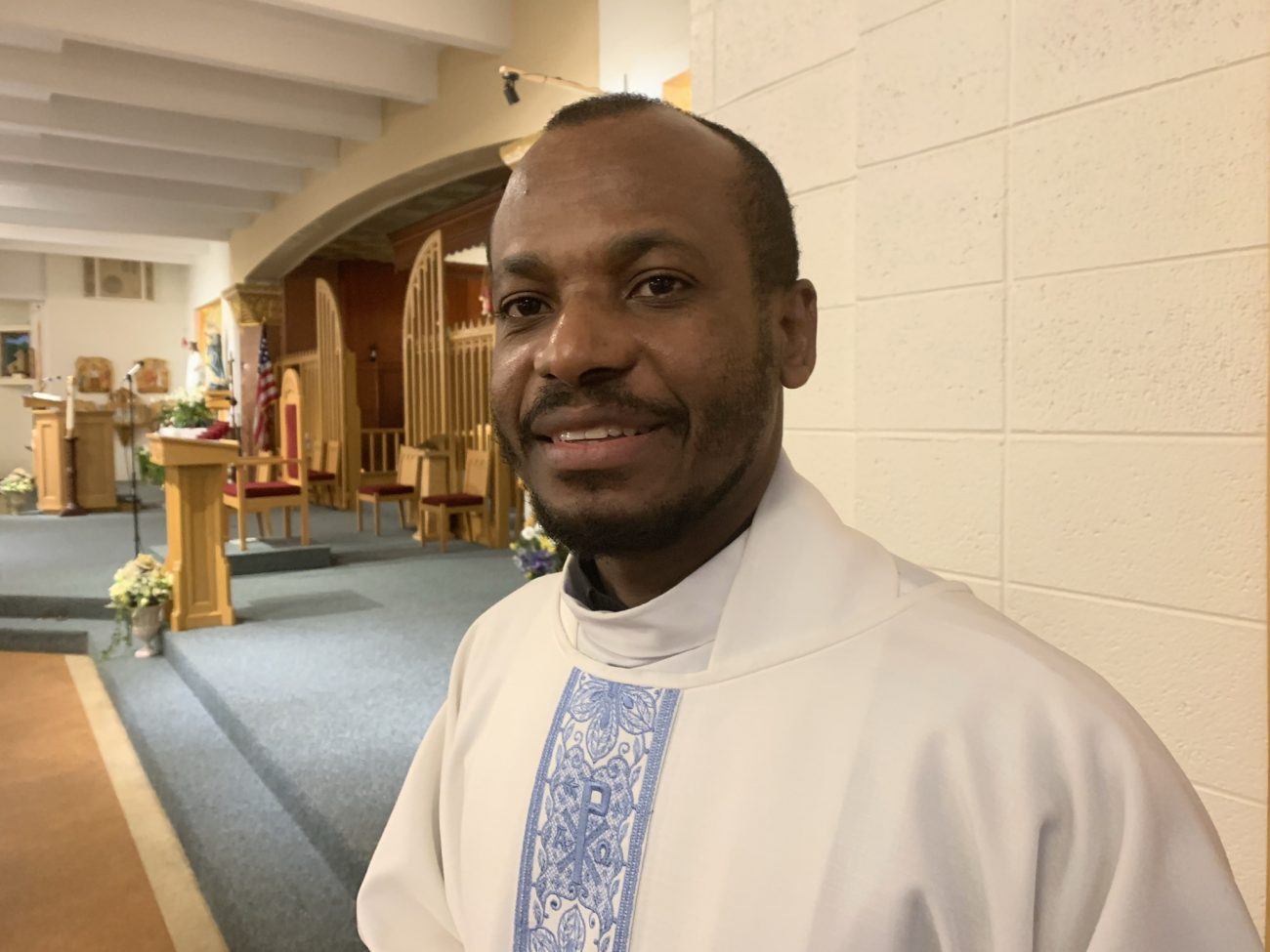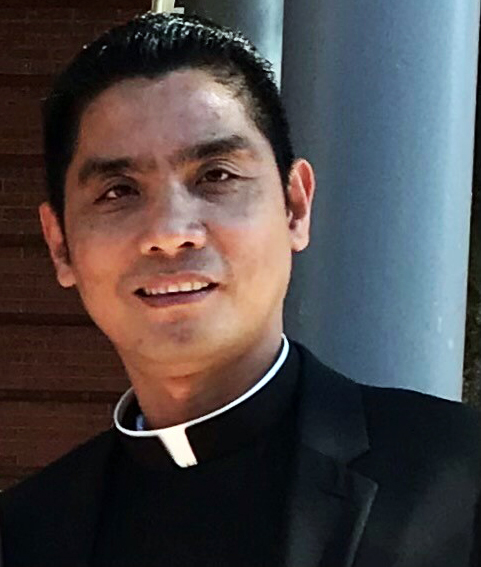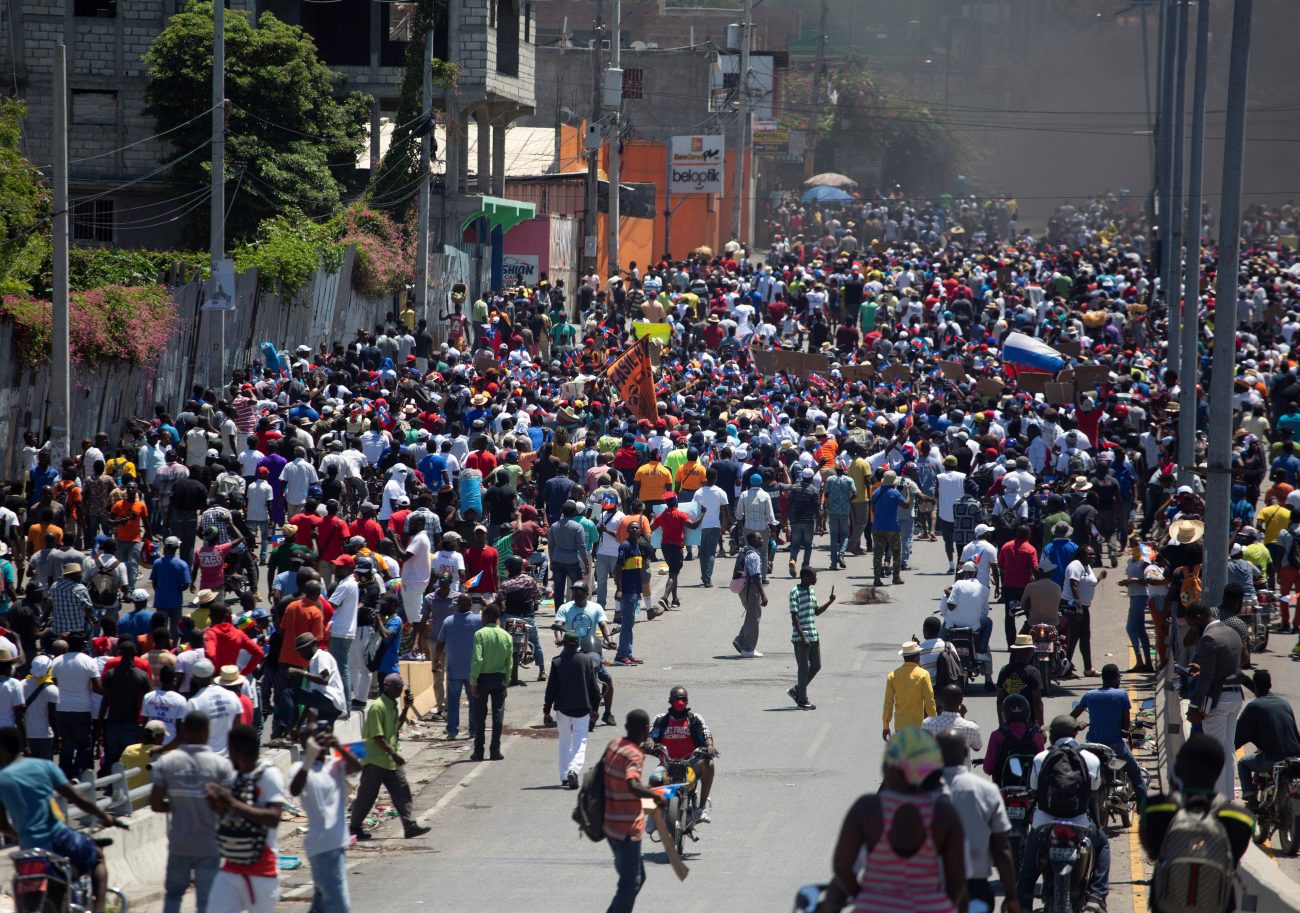The April 11 kidnapping of five priests and two religious sisters in Haiti highlights that country’s dire situation, say members of the local Haitian Catholic community.
“Life in Haiti is very bad now,” said Oblate Father Eugène R. Almonor, chaplain of the Philadelphia Haitian Catholic Community, whose estimated 600 members worship at both St. William and St. Barbara Parishes. “Many families are suffering, and people cannot live in peace.”
An armed gang calling itself the “400 Mawozo” captured the group, along with three lay faithful, near St. Jacques Catholic church in Croix-des-Bouquets, some six miles from the capital of Port-au-Prince. The victims — who were en route to the installation of Father Jean Anel Joseph as pastor of St. Rock in Port-au-Prince – include Society of St. Jacques Fathers Michel Briand, Evens Joseph, Jean Nicaisse and Joël Thomas; Father Hugues Baptiste of the Archdiocese of Cap-Haïtien in northern Haiti; Sister Anne Marie Dorcélus, Petite Soeur de Sainte Thérèse; and Sister Agnès Bordeau from the Sisters of the Providence of the Pommeraye. Both Father Briand and Sister Agnès are French citizens.
[hotblock]
The kidnappers have demanded a ransom of $1M. France has tasked its Central Office for the Fight against Organized Crime (OCLCO), which has jurisdiction over crimes committed against French citizens abroad, with investigating. Haiti’s President Jovenel Moïse said he will “do everything the law allows” to secure the release of those kidnapped.
Earlier this month, gunmen stormed a Holy Thursday gathering at an evangelical church near Port-au-Prince, abducting the pastor and three others as the service was being livestreamed. Following payment of an undisclosed sum, the four were released a few days later.
‘A lot of things are upside down in Haiti’
Although the two attacks shocked the nation, “every day, Haiti knows many cases of kidnapping,” said Father Almonor, who celebrated an April 11 Mass “for the liberation of the missionaries and also for all people who are suffering a lot in Haiti due to insecurity.”
Andre Brutus of St. Barbara Parish said that he was “not surprised” by the abductions, since “a lot of things are upside down” in his native Haiti.
His wife Gladys noted that the trend of kidnapping for ransom in Haiti has intensified over the past three years, and targeting clergy represents an alarming escalation.
“Before, they kidnapped doctors and business people,” she said. “Never priests or nuns, until now.”

Oblate Father Eugène R. Almonor, chaplain of the Philadelphia Haitian Catholic Community, said the Catholic Church has a vital role to play in reforming Haiti, as kidnapping for ransom amid poverty and instability becomes an “everyday” occurrence. (Gina Christian)
Children and women are also increasingly among the victims of gang violence. According to UNICEF, such attacks rose 62% between September 2020 and February 2021. Just prior to the clergy and religious kidnapping, armed men invaded a Port-au-Prince orphanage, raping two young teens and a 27-year-old woman.
The poorest nation in the Americas, Haiti has suffered from sustained social and political turmoil, as well as natural disasters. A 2010 earthquake killed some 200,000 and devastated the country’s infrastructure. Despite some $13.5 billion in international aid, the country has a long way to go in rebuilding, said the Brutuses, who fled in 1991 after their prosperous food company was torched by angry opponents.
“They burned our business,” said Gladys Brutus. “We packed up everything and moved to the U.S.”
“Our lives were in danger,” said her husband. “They could come and kill you.”
Missionhurst Father Andrew Labatorio, pastor of Our Lady of Hope Parish in Philadelphia, came close to losing his own life while serving in Haiti from 2000 to 2017.
Just before celebrating Mass one day at his Port-au-Prince parish, “I was held at gunpoint inside the church,” he said.
The priest was able to convince the assailants to let him proceed with the liturgy by agreeing to meet with them afterwards outside the church. Once on the street, neighbors backed him in a verbal confrontation with the gangsters, during which Father Labatorio reminded them he was in Haiti “to work with and improve the community, and to give (his) services” to the people.

Missionhurst Father Andrew Labatorio, pastor of Our Lady of Hope Parish in Philadelphia, was once held at gunpoint in a church during his 17-year mission in Haiti. (Photo courtesy of Father Andrew Labatorio)
However, the seemingly peaceful resolution took a deadly turn: the following Saturday, one of the attackers was shot and killed.
“The other two guys came back and knelt for forgiveness,” Father Labatorio recalled.
He added that gangs in Haiti represent a “very complex reality,” one solidified by systemic poverty and political corruption.
According to the think tank InSight Crime, human rights groups “have expressed concerns that ties between politicians and gangs have comprised the rule of law in Haiti.”
Some gangs are “born out of the complete failure of the state” to effect stability, said Father Labatorio. “With no other options in life, banditism is most likely to happen.”
Such despair reduces respect for human life, while increasing levels of aggression, he said, citing a 14-year-old whom he had encouraged to leave gang life.
“He said, ‘Father, I’m already as good as dead in a way,’” said Father Labatorio. “In less than a year, I had to officiate at his funeral.”
Absent government, present Church
The Catholic Church “has an important role” in quelling Haiti’s rising violence through “evangelization by education, health and the accompanying of the vulnerable people,” said Father Almonor.
“Where the Haitian authorities are absent, the Catholic Church is present to help people,” he said.
[tower]
Haitian Cardinal Chibly Langlois told media that the Haitian people “are totally tired with the acts of kidnapping” and denounced the “notorious impotence on the part of (Haitian) authorities.”
The nation’s 11 bishops led an April 15 “Mass for the freedom of Haiti” in Pétion-Ville, a suburb of Port-au-Prince, as part of a national strike in response to the April 11 kidnappings and the spiraling lawlessness.
As the congregation followed up the liturgy with chants for government reform, police outside the church began to fire tear gas on the crowd for reasons not fully clear. Yet the Haitian bishops’ conference urged “calm” to ensure a “return to the route of democracy and development.”
Central to that is countering the root causes of unrest, said Cap-Haïtien native Walky Joseph, a case manager for archdiocesan Catholic Social Services and a student in the permanent diaconate program at St. Charles Borromeo Seminary in Wynnewood.
“The church can help by actively assisting its parishioners, and by creating programs that not only educate them, but tackle the issue of poverty,” Joseph said.
Several of those interviewed described the Haitian people as “resilient” – including Sisters of the Blessed Sacrament Donna Breslin and Patricia Downs, who each spent several years in the Ferrier community, close to Haiti’s northeast border with the Dominican Republic.
“They had a very deep faith, and they were able to get through very difficult situations and still move forward,” said Sister Donna, noting that gang violence left her rural mission area largely untouched.
“I found the people extremely close to God,” said Sister Patricia. “They were hard workers, and absolutely wonderful.”
Sister Donna also said she saw “real leadership” among those she served.
“Given the opportunity, they excelled in running food programs from the European Union,” she said. “They took care of all the paperwork and distribution. There was so much human potential.”
With the support of “Catholics from everywhere in the world,” Haiti’s crisis can be defused and that potential realized, said Joseph.
“When Catholics are threatened by this kind of stuff, the church needs to stand and demonstrate actively, and openly state its position,” he said.
PREVIOUS: St. Charles Seminary buys 15-acre tract at Gwynedd Mercy University
NEXT: Vocation camp plants seed of discerning God’s will in young men




Share this story